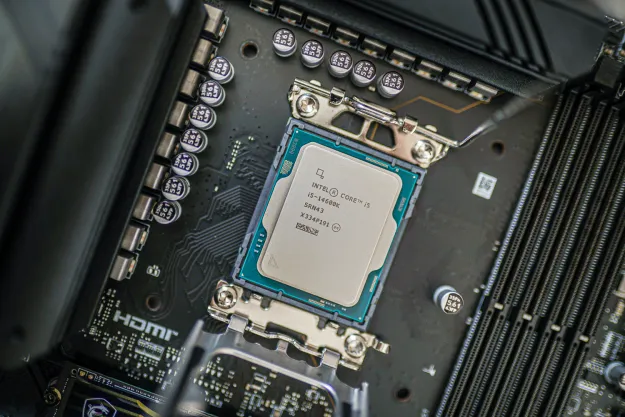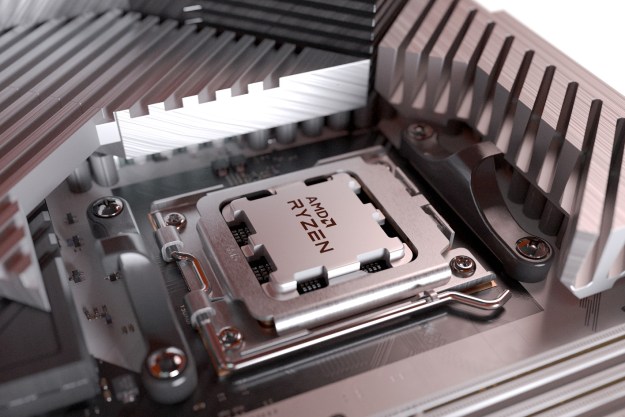Once the scrappy underdog to Intel in the CPU space, AMD’s latest Ryzen 5000 series processor proves that the company can attract the attention of enthusiast gamers. AMD has shown that gamers can achieve a nearly two-fold improvement in performance by upgrading from the original Zen architecture on the Ryzen 7 1800X processor from four years ago to today’s Zen 3 platform on the Ryzen 5000 series — in particular, the Ryzen 7 5800X processor.
In its review, publication Golem.de reported that performance of the latest Zen 3-based Ryzen 5000 CPU is 89% better than the original Zen architecture that was released four years ago, according to Wccftech. This should provide incentive for Team Red gamers looking to upgrade this year, provided they can find a Ryzen in stock.
This latest benchmark result is on top of the early glowing reviews for AMD’s latest silicon family. Reviewers who compared AMD’s latest silicon to the Intel competition found that the 12-core Ryzen 9 5900X matched the performance of Intel’s 18-core Core i9-10980XE in some key benchmarks. In gaming, even scaling down to a Ryzen 7 5800X will get you better performance across a number of titles compared to Intel’s Core i9-10900K.

When AMD unveiled its Ryzen series, CEO Lisa Su noted that Zen 3 increases the company’s lead in efficiency, overall performance, single-threaded performance, and gaming performance compared to the prior Zen 2 architecture. In effect, AMD said Zen 3 delivers a 19% uplift in overall performance compared to Zen 2, though some early reviews noted that some games showed improvements between 5% and 50%.
AMD’s own benchmarks showed approximately a 50% improvement in 1080p gaming on titles like Counter-Strike: Global Offensive and League of Legends when compared to the prior-generation architecture. Some titles, like Battlefield V, showed a more modest 5% improvement.

Historically, AMD had pushed the performance boundary with each successive processor generation. When it moved to the first-generation Zen architecture, AMD stated that it had clocked a 52% improvement over the prior generation, while the move to Zen 2 from Zen 1 netted a 13% inter-process communication (IPC) improvement.
Mark Papermaster, AMD’s chief technology officer, said that although AMD relied on the same 7nm node, the company used a new core layout to squeeze out more performance, which helped achieve the 19% IPC gains from Zen 2 to Zen 3. The Zen 3 architecture uses a new, unified eight-core complex that allows each core to have access to the L3 memory cache. This helps to drive up performance and reduce latency, areas that AMD is focusing on as it targets gamers.
Compared to the competition, AMD’s improvements with each successive generation of processor is nothing to scoff at — the industry is more accustomed to gains of approximately 5% to 10% with each new generation of CPUs. By accelerating on performance gains with Zen 3, a number of reviewers have noted that Intel’s advantage in gaming has largely been wiped out by Ryzen 5000.
In addition to a better performance, AMD is also promoting better power efficiency with this generation. The Zen 3 architecture is 24% more efficient compared to Zen 2 and up to 2.8x more efficient compared to Intel’s 10th-Gen Core i9 processor.
Editors' Recommendations
- I’ve used Intel CPUs for years. Here’s why I’m finally switching to AMD
- AMD Zen 5: Everything we know about AMD’s next-gen CPUs
- The one AMD 3D V-Cache processor you should avoid at all costs
- Nice try, Intel, but AMD 3D V-Cache chips still win
- Intel just launched the ‘world’s fastest’ CPU



